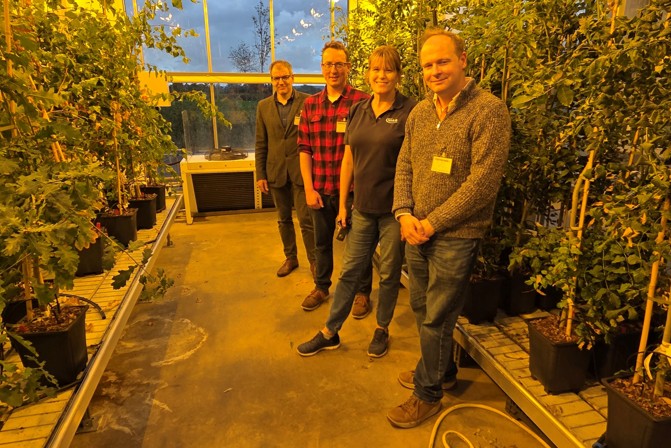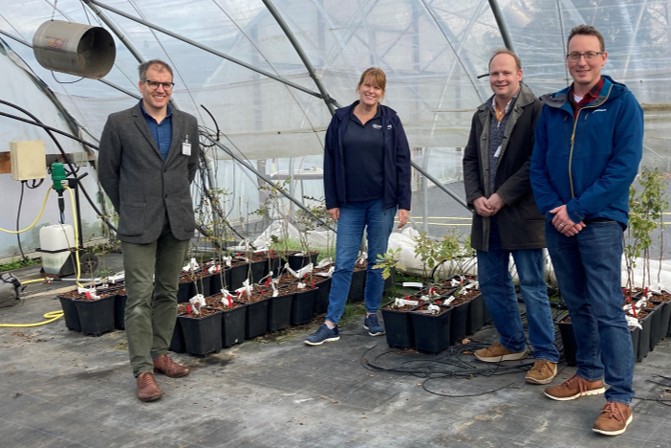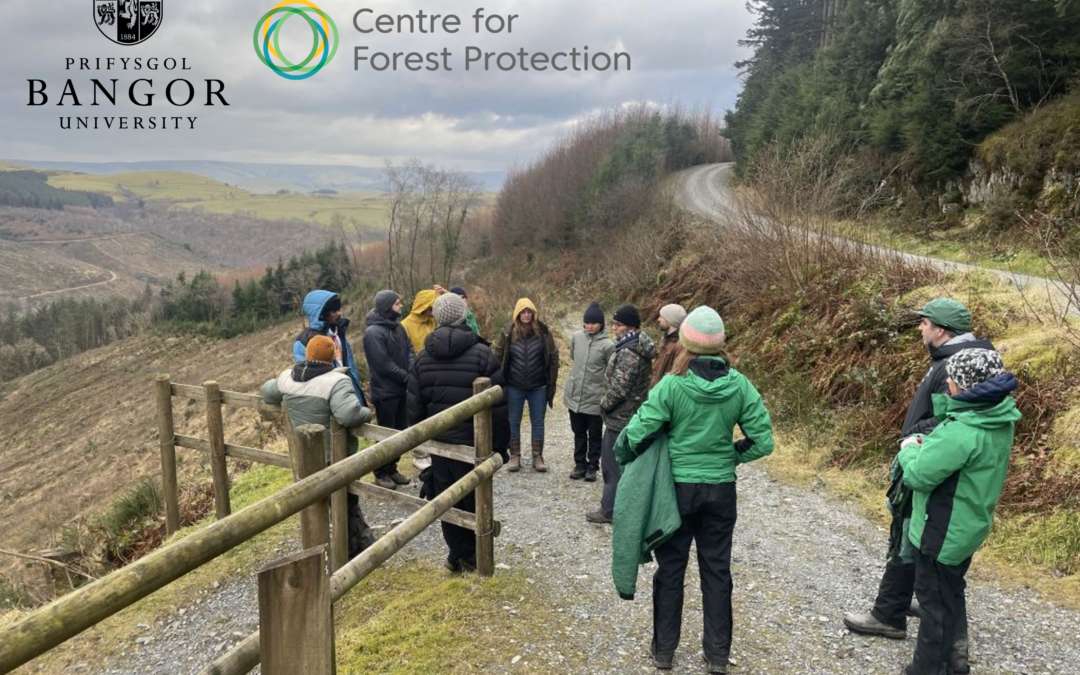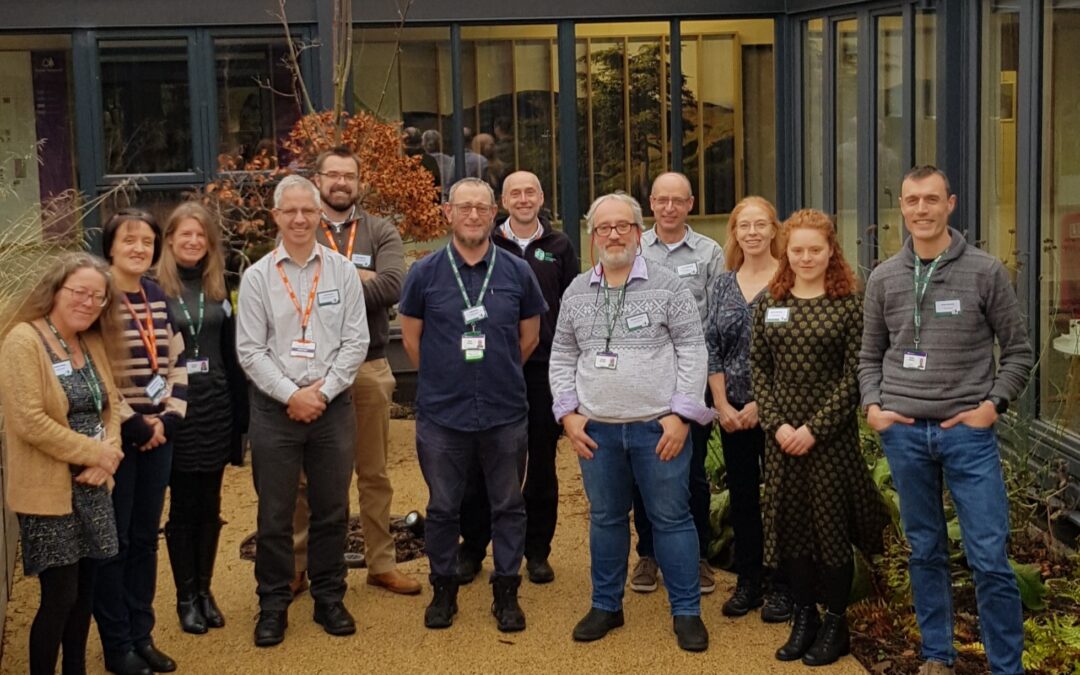This project relies on a multi-year experiment comparing how three different tree species (Silver birch, Ash and Oak) respond to specialised ‘speed breeding’ growth conditions, compared to young trees which are being grown continuously under ambient polytunnel conditions, managed at Niab, East Malling.
Held at Niab, East Malling and hosted by Abigail Johnson, the meeting brought together Dr Andy Plackett and Dr Graeme Kettles from the University of Birmingham and Prof Richard Buggs from Royal Botanic Gardens, Kew.

The speed breeding project team on site at Niab, East Malling.
Meeting on-site allowed the project team to inspect their trees in person after the first season under speed breeding conditions, confirming that the project is progressing on schedule. It also enabled the team to discuss any technical issues relating to the growth and health of the trees and to fine-tune their experimental strategies going forward (as well as see the historic East Malling Research facility).
It was also a great opportunity to share expertise from different disciplines across the team: Abi brought the team up to speed on sapling care, Richard gave an impromptu master-class in how to spot the symptoms of Ash dieback, Graeme was able to advise on treatments for oak powdery mildew, while Andy described the inner workings of plant shoot tips and flowering.
Abi, Andy and Graeme also engaged in a quick team-building exercise collecting shoot tip samples for microscopic analysis. The team finished the day with a renewed sense of purpose, team spirit and lots of takeaway twigs.
You can find out more about the project here: Speed breeding technologies for UK broadleaved trees – Centre for Forest Protection.


